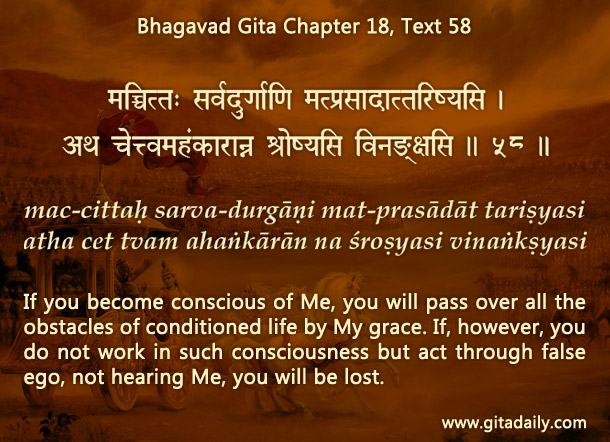If children see a horror movie featuring phantoms, they may become fearful of, say, dark places, dreading that some deadly phantom may spring from some unseen corner.
We may reassure them that such phantoms being imaginary shouldn’t be taken seriously. But we may ourselves be taking seriously the phantoms created by our mind. It may imagine things going terribly wrong and everything falling apart, leaving us disgraced and destitute.
No doubt, things can go wrong in real-life. But we also have the power to respond rightly to them. However, when the mind starts playing a horror movie within us, it summarily hands us the role of victim-in-chief, wherein we are too paralyzed to do anything or, worse still, whatever we do seems to only make things worse. By paying attention to and thus unwittingly believing the mind’s phantoms, we distract, dishearten and disempower ourselves, leaving ourselves incapable of constructive action in the present.
Gita wisdom can help us exorcise the mind’s phantoms. Its philosophical insight that we are indestructible souls reassures us that we at our core are beyond being harmed by anything material, even if the mind’s phantoms do materialize in future. The Gita’s guidelines for practicing yoga, especially bhakti-yoga, can purify us of our weaknesses, especially our gullibility in believing the mind. By devotional purification, we develop the distance from the mind to evaluate its ideas objectively. So, when it starts playing a horror movie, we can recognize that the ghastly scenarios it depicts are just phantasmagorias. More importantly, bhakti-yoga helps us experience Krishna’s solacing presence, thereby inspiring us to put our faith in him instead of in the mind’s phantoms. Pertinently, the Bhagavad-gita (18.58) assures that if we just become conscious of Krishna, he will take us beyond all problems – even the problem of the mind’s phantoms.
Explanation of article:
https://www.youtube.com/watch?v=2rfJHJctTJU
Podcast:

